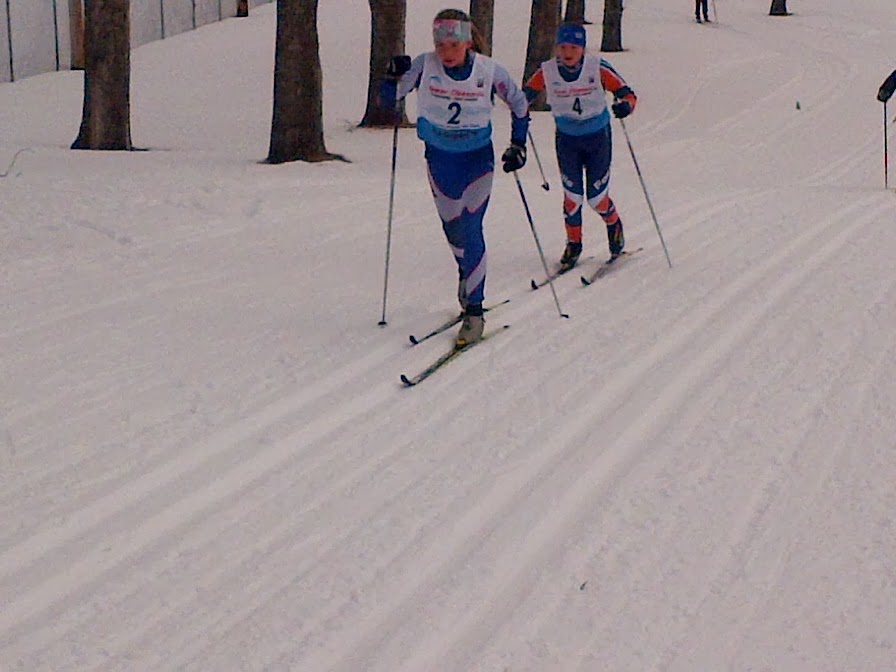reflections on effective coaching...
So much of the reading I am doing recently has focused on indicators of effective teaching. As I read, my mind drifts naturally to thinking about how does this relate to coaching adolescent cross country skiers. The parallels in ideas are striking. Quality teaching and coaching definitely has some indicators. The key to quality coaching is not whether a coach is seen to be 'excellent' by colleagues, but rather, whether they are 'excellent' as seen by athletes.
According to Hattie in Visible Learning, quality teaching it seems can be enhanced by a teacher's verbal ability and interpersonal skills. Coaches who can express their ideas articulately in language understood by athletes, and who can build relationships seem to be seen as better coaches by kids. But being a great coach of adolescents is a bit bigger than that. Some of Hattie's other research findings would indicate that there are a number of other characteristics of coaches (teachers) that also are highly correlated with effective coaching. These include:
- having high expectations - encouraging your athletes to place a high value on being a skilled and fit cross country ski racer
- teaching the language, the love, and the details of a sport - helping young athletes construct understandings of the technical, mental, and physical aspects of our sport
- monitoring and evaluating - getting kids to think about the nature and quality of their skiing - giving regular and effective feedback
- coaches who challenge athletes - encouraging kids to think through and problem solve
- coaches having a deep understanding of their coaching and its effect on athlete learning - thinking about how are go about interacting, teaching, assessing, and communicating
- having a high level of passion - loving what you do as a coach
- being adept at improvisation - being able to react to the immediate learning need of each athlete
- having respect for athletes - being respectful in voice tone, language, and appropriate personal boundaries
- having a positive practice culture/climate that fosters learning - adolescents can tell when the focus is on learning and improving
These aren't my ideas. They come from John Hattie's book Visible Learning. They are however my reflections on how his research based ideas relate to coaching adolescent cross country skiers. When I read this stuff, I kind of go, ya, there are no big revelations in there. But improving your practice as a coach, and striving for quality coaching asks us as coaches to reflect on what we're doing and extend the work we do in new ways. That my friend, is the real value of these ideas about quality coaching. Its work I try to do every day when I work with kids. Try something new. Push my envelope of skill a little more by taking an idea and changing how I interact with the kids I coach. It is the only way to improve. To try new things, to find areas of the work you do to improve.
I know alot of teachers and coaches. My experience is that those teachers and coaches who are most masterful at their work are folks who have made very deliberate attempts at improving aspects of their coaching or teaching. They do this by reading, by talking with colleagues, by trying new strategies and methods.
The fact is that Hattie's research would show that 'content' knowledge is not the biggest predictor of quality teaching. The items listed above have a much stronger research based correlation to quality teaching.
So you don't have to have competed in the Olympics to be an excellent coach. Its not that olympic athletes can't be excellent coaches because in fact many olympic athletes go on to be highly successful coaches. But research would show us that there are many other more important indicators of quality coaching than personal experience. Most of those don't require initial expert content knowledge.
So...go for it. My best pal in the world sent me a message the other day that read:
If you do not go after what you want, you will never have it.
If you do not ask, the answer will always be no.
If you do not step forward, you will always be in the same place.
That is one of the great benefits of best friends - they help nudge you along to become something better. Thanks to my pal, Vince for doing that for me.

No comments:
Post a Comment